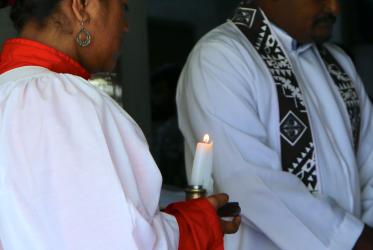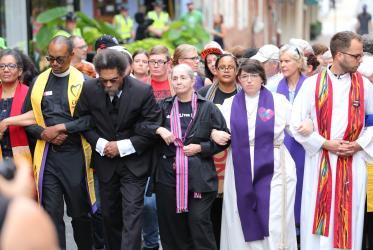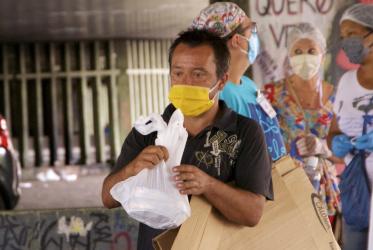Letter to H.E. Dr Fernando Henrique Cardoso, President of the Republic, with copies to the president of the court of the State of Para, José Alberto Soares Maia, and to the minister of justice, 25 August 1999.
Dear Mr President,
On behalf of the World Council of Churches I must convey to you our consternation and sense of indignation at the decision reached by the Court in Belem on August 18th, by which it absolves three of the officials charged with responsibility for the massacre of 19 landless rural workers in El Dorado do Carajas in April 1996.
Soon after that massacre, at the invitation of ecumenical bodies in Brazil, the WCC sent an international ecumenical delegation there to ascertain the facts on the ground. Our delegation heard eye-witness accounts in which the perpetrators were clearly identified. It also heard directly the long-suffering landless people, and shared abroad their poignant cry for justice. Subsequently we have followed closely developments in this case and the peoples' demands both from a distance and through further visits to your country.
On the basis of the massive evidence which has been gathered by the prosecutor in this case, much of which we could also confirm, we and many others around the world assumed that justice would be done. To our astonishment, what has happened in Belem has rather mocked justice, and the victims of this heinous crime.
As you are aware, the WCC played an important supportive role during the brutal years of the military dictatorship to document and denounce the massive violations of human rights in that dark period. Since then, we have supported the growing movement in Brazil, elsewhere in Latin America and in other parts of the world to bring an end to impunity for such crimes. We sincerely believed, along with many Brazilians, that this case would mark a substantial turning point in the justice system of your country when it comes to the practice of impunity. We held out this hope, knowing full well that the granting of impunity for those responsible for massive violations of human rights is an incentive for the repetition of such crimes. This response to those who witnessed and who suffered the consequences of the massacre in El Dorado do Carajas can only feed the rising incidence of violence in Brazil, in much of which, it has been amply shown, police and other officials of the Government have been directly involved.
This, Mr President, cannot be the last word in this case. We therefore appeal to you and to the responsible ministers of your Government to override this judgement in the name of the principles of human rights and the international instruments to which Brazil is a party, and in fulfillment of the provisions of your own Constitution.
In anticipation of your favorable response, and of your positive corrective action, I remain
Respectfully yours,
(Rev.) Dwain C. Epps
Director
Commission of the Churches on International Affairs


